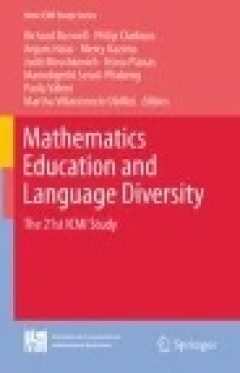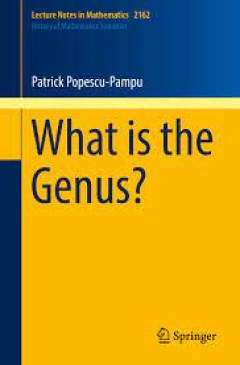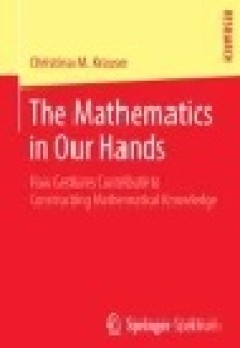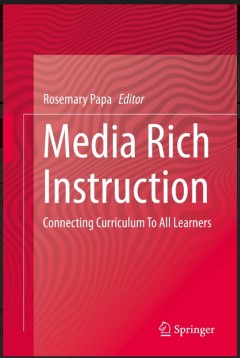Filter by

Mathematics Education and Language Diversity: The 21st ICMI Study
*THIS BOOK IS AVAILABLE AS OPEN ACCESS BOOK ON SPRINGERLINK* This book examines multiple facets of language diversity and mathematics education. It features renowned authors from around the world and explores the learning and teaching of mathematics in contexts that include multilingual classrooms, indigenous education, teacher education, blind and deaf learners, new media and tertiary educa…
- Edition
- -
- ISBN/ISSN
- 978-3-319-14511-2
- Collation
- -
- Series Title
- -
- Call Number
- -

Mathematics Education in the Early Years: Results from the POEM2 Conference, …
This book presents chapters based on papers presented at the second POEM conference on early mathematics learning. These chapters broaden the discussion about mathematics education in early childhood, by exploring the debate about construction versus instruction. Specific sections investigate the teaching and learning of mathematical processes and mathematical content, early childhood teacher d…
- Edition
- -
- ISBN/ISSN
- 978-3-319-23935-4
- Collation
- -
- Series Title
- -
- Call Number
- -

Mathematical Problem Posing: From Research to Effective Practice
The mathematics education community continues to contribute research-based ideas for developing and improving problem posing as an inquiry-based instructional strategy for enhancing students’ learning. A large number of studies have been conducted which have covered many research topics and methodological aspects of teaching and learning mathematics through problem posing. The Authors' ground…
- Edition
- -
- ISBN/ISSN
- 978-1-4614-6258-3
- Collation
- -
- Series Title
- -
- Call Number
- -

Youngsters Solving Mathematical Problems with Technology The Results and Imp…
This book contributes to both mathematical problem solving and the communication of mathematics by students, and the role of personal and home technologies in learning beyond school. It does this by reporting on major results and implications of the Problem@Web project that investigated youngsters’ mathematical problem solving and, in particular, their use of digital technologies in tackling,…
- Edition
- -
- ISBN/ISSN
- 978-3-319-24910-0
- Collation
- -
- Series Title
- -
- Call Number
- -

What is the Genus
Exploring several of the evolutionary branches of the mathematical notion of genus, this book traces the idea from its prehistory in problems of integration, through algebraic curves and their associated Riemann surfaces, into algebraic surfaces, and finally into higher dimensions. Its importance in analysis, algebraic geometry, number theory and topology is emphasized through many theorems. Al…
- Edition
- -
- ISBN/ISSN
- 978-3-319-42312-8
- Collation
- XVII, 184
- Series Title
- -
- Call Number
- -

Alternative Theoretical Frameworks for Mathematics Education Research: Theory…
This book explicates some of the fundamental philosophical tenets underpinning key theoretical frameworks, and demonstrates how these tenets inform particular kinds of research practice in mathematics education research. We believe that a deep understanding of significant theories from the humanities and social sciences is crucial for doing high-quality research in education. For that reason, t…
- Edition
- Ed. 1
- ISBN/ISSN
- 978-3-319-33961-0
- Collation
- IX, 193
- Series Title
- -
- Call Number
- 510.07 FRE a

The Mathematics in Our Hands
In her empirical study, Christina Krause investigates how gestures can contribute to epistemic processes in social interactions. She expands the traditional speech-based approach to analyzing social processes of constructing mathematical knowledge by employing a multimodal perspective. Adopting a semiotic approach, she takes into account two functions of gestures as signs used by the participan…
- Edition
- -
- ISBN/ISSN
- 978-3-658-11948-5
- Collation
- XIX, 350
- Series Title
- -
- Call Number
- -

All Positive Action Starts with Criticism: Hans Freudenthal and the Didactics…
This study provides a historical analysis of Freudenthal’s didactic ideas and his didactic career. It is partly biographical, but also contributes to the historiography of mathematics education and addresses closely related questions such as: what is mathematics and where does it start? Which role does mathematics play in society and what influence does it have on the prevailing views concern…
- Edition
- Ed. 1
- ISBN/ISSN
- 978-94-017-9334-6
- Collation
- XV, 386
- Series Title
- -
- Call Number
- 510.07 GEM a

Media Rich Instruction: Connecting Curriculum To All Learners
E-learning has brought an enormous change to instruction, in terms of both rules and tools. Contemporary education requires diverse and creative uses of media technology to keep students engaged and to keep up with rapid developments in the ways they learn and teachers teach. Media Rich Instruction addresses these requirements with up-to-date learning theory and practices that incorporate inno…
- Edition
- -
- ISBN/ISSN
- -
- Collation
- -
- Series Title
- -
- Call Number
- X, 311

Visuospatial Reasoning An Ecocultural Perspective for Space, Geometry and Me…
This book develops the theoretical perspective on visuospatial reasoning in ecocultural contexts, granting insights on how the language, gestures, and representations of different cultures reflect visuospatial reasoning in context. For a number of years, two themes in the field of mathematics education have run parallel with each other with only a passing acquaintance. These two areas are…
- Edition
- -
- ISBN/ISSN
- 978-3-319-02463-9
- Collation
- XXXI, 377
- Series Title
- -
- Call Number
- -
 Computer Science, Information & General Works
Computer Science, Information & General Works  Philosophy & Psychology
Philosophy & Psychology  Religion
Religion  Social Sciences
Social Sciences  Language
Language  Pure Science
Pure Science  Applied Sciences
Applied Sciences  Art & Recreation
Art & Recreation  Literature
Literature  History & Geography
History & Geography